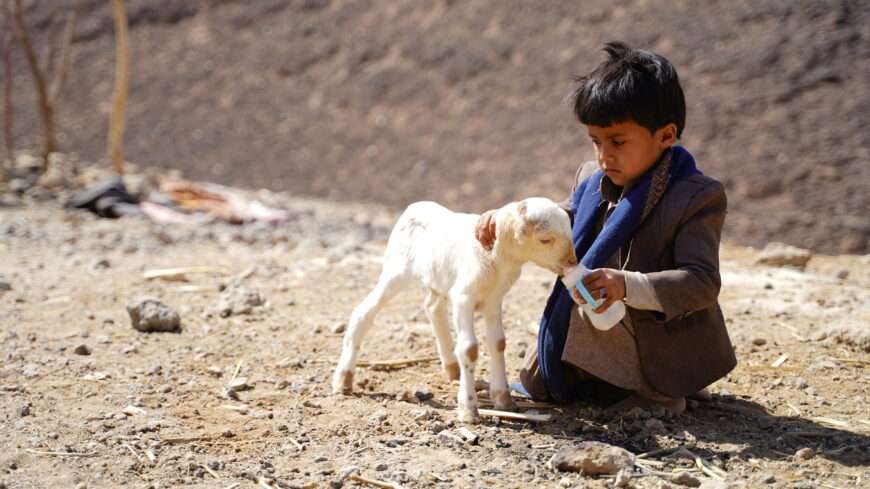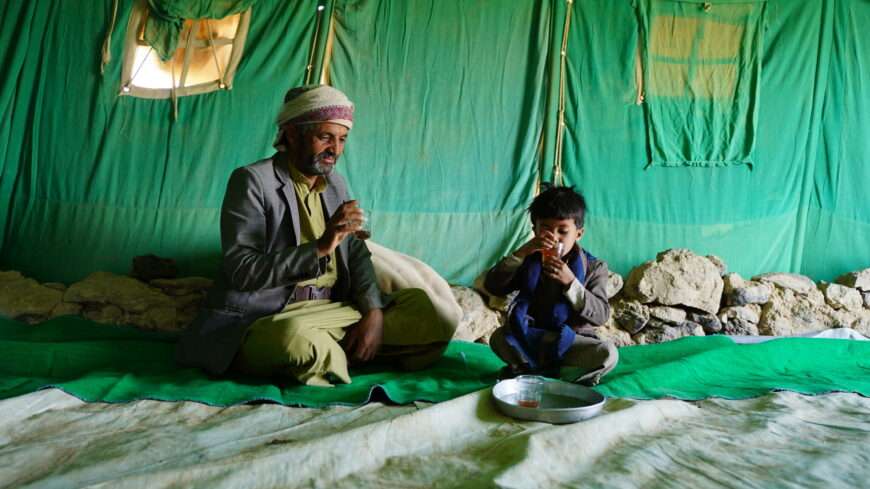Oxfam and its humanitarian partner organisations are providing humanitarian support including cash, food, clean water and sanitation to people recovering from multiple cyclones that have torn across Southern Africa in the past two weeks.
The region has been most recently rocked by Cyclone Batsirai and earlier Tropical Storm Ana. Ana alone affected over 180,000 people, killing at least 38, mostly in Zambezia, Nampula, and Tete provinces in Mozambique, flooding thousands of hectares of land and causing landslides. In Malawi, 37 people have been reported dead, 22 missing and 158 injured. Over 193,558 households (948,434 people) are affected, and 740 hectares of crops have been destroyed.
The ferocity and frequency of the storms are consistent with scientific warnings of worsening climate-related harm. Edward Thole, a Program Manager at Circle for Integrated Community Development (CICOD), one of Oxfam’s partner organisations, said that having strong climate-proof mitigation and safety measures already in place ―such as new water dykes around Bona village in Malawi― was “a life-saver”.
Margaret Kasumgwi, from Phalombe in Malawi told Oxfam: “The floods came when it was getting dark. Within minutes, water was knee high. We ran to safety leaving everything behind. Everything we had, including our food, is gone. We have no one to turn to because everyone here is affected. We are hungry.”
Justin Kumbira, a smallholder farmer from Salima village in Malawi, said he and his family had lost property to other floods over the past years: “I don’t know what else to do because every time we rebuild something, floods come and take everything. Floods have reduced us to beggars because we can’t feed ourselves now”.
“It will not be easy getting back on our feet. My field is destroyed, and crops may not make it, we have lost food we were keeping in the house, clothes gone and right now finding work is very difficult,” Kumbira said.
Oxfam in Southern Africa Programme Director, Dailes Judge said: “the increased frequency of tropical storms and other climatic shocks in the region means 88 million people across this region, that are already extremely poor as a result of inequality and two years of COVID-19, have little resilience left and their capacity to bounce back is severely constrained. This is largely due to decreased funding to emergency, recovery and long-term support to affected communities.”
For the past three years, five tropical storms have hit the Southern Africa region killing 780 people and leaving nearly 5 million people extremely vulnerable. On several occasions, the storms have been followed by dry spells and drought, perfect breeding conditions for pests such as fall armyworms that have decimated many thousands of hectares of crops.
Oxfam and partners are urgently calling for more aid to boost the humanitarian response to affected countries, build up people’s resilience building and moving into longer-term development.
Notes
Oxfam and partners’ humanitarian response is currently happening in Malawi, Mozambique and Zimbabwe. To date, 3,425 people have been reached with water sanitation and hygiene, food assistance through multipurpose cash transfers and gender and safeguarding interventions.







